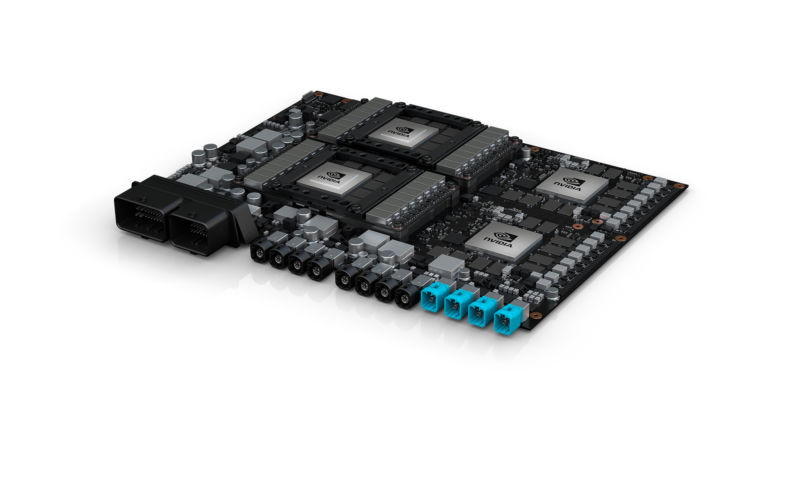Bosch and Daimler, two of Germany's biggest automotive firms, announced Wednesday that they have selected Nvidia's Drive Pegasus artificial intelligence computer chip and supporting software to power their future self-driving systems.
The computer chip can handle over 320 trillion operations per second and a terabyte of data bandwidth each and every second, which is enough for fully self-driving systems, i.e. Level 5 capability.
We're talking a lot of data. Just one video sensor, such as Bosch’s stereo video camera, generates 100 gigabytes of data in just 0.6 miles of travel.

NVIDIA Drive PX Pegasus
The chip can assess all of the information coming from a self-driving car's various lidar, radar, video and ultrasonic sensors, compare this with highly detailed map data, and then use AI to plan the trajectory of the vehicle—all within fractions of a second. According to Nvidia, the chip performs these actions at a speed equivalent to the sensation of touch that needs between 20 and 500 milliseconds to reach the human brain.
The chosen trajectories will be based on vehicle-driving algorithms generated by Bosch and Daimler using machine-learning methods. Bosch and Daimler announced in April 2017 that they would work together on a robust and reliable self-driving system for complex urban environments. On Wednesday, the two firms said their self-driving system is to be ramped up for mass production by the beginning of the next decade.
Other firms such as the Volkswagen Group, Uber and Baidu have also partnered with Nvidia, though none of these partnerships have involved Nvidia's Drive Pegasus chip to date.
